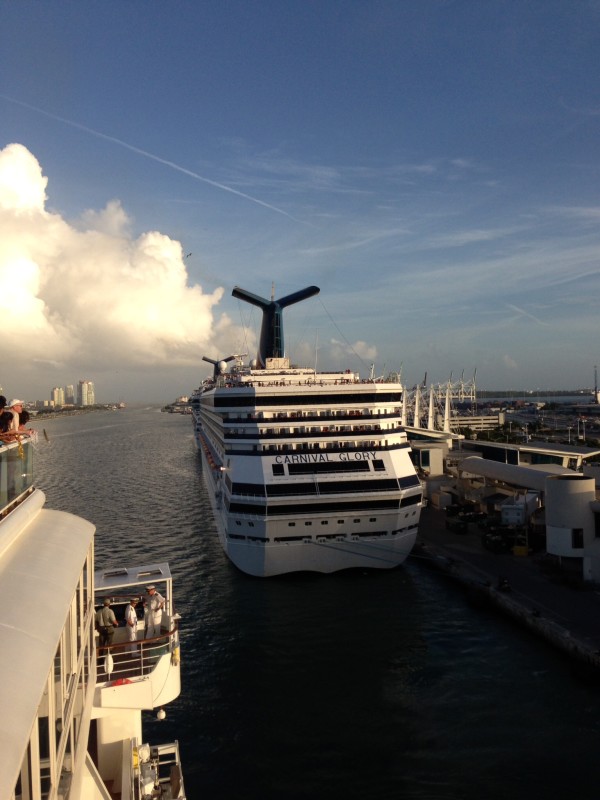I’m all for the extension of DST, and would like to see it be the year-round standard. Perhaps it’s because I’m not an early-riser, "day" person, perhaps it’s because when I get home I want to do something outside, and it’s darker than a cave at 5PM when the time shifts back in the winter.
National Geographic News has an article about the rationale / rationalizations for (admittedly fairly weak, but they’re weak in my favor), and the pretty weak arguments against its change. It’s worth reading, but there are some bits in here that made me laugh out loud. Such as…
The airline industry is adamantly against a change of the daylight
saving calendar, which officials say will severely affect scheduling."There will be disruption all over the place. If [daylight
saving time] is extended [by] four weeks, we’ll end up with some really
major difficulties," Anthony Concil said. Concil is spokesperson for
the International Air Transport Association, which represents 265
airlines that account for 94 percent of all international scheduled air
traffic."When Europe and the U.S. are on different times, connections
become less convenient. Right now there is one week of discord between
the U.S. and Europe so it’s sort of at a manageable level," Concil
said.
So, we can do it for one week, but another four would be a real hardship. Riiiiight.
The real knee-slapper was from the PTA:
…"We remain concerned about the potential safety issues the extension
into March may cause due to the increased danger of traveling to school
in dark hours."
Why did I find that funny? No, I think child safety is a terrific thing, and m against kids getting run over on the way to school. It’s the disconnect about what actually happens, or doesn’t, at school: the kids aren’t getting any exercise at school since the PE classes are now "part of the curriculum" and not daily exercise, kids can no longer run on playgrounds, etc.
My main hope to get any outdoor play / family fun time is after school and work. Sunlight isn’t too much to ask.



The airline position is more sensible than the press summaries. They can deal with the change, but not this year. Airline schedules, ticket sales, vacation plans, etc. are committed one year in advance. A change for this fall will cause chaos by invalidating all the schedule commitments, tickets already sold, vacations and business travel already scheduled, etc. A change next fall would be managable because there is still time to make changes without breaking any existing commitments. It would not necessarily be desirable for international travel since during that month there would be an extra hour of inconvenience for travelers who will arrive and depart an hour earlier or later than the regular schedules.
It won’t “invalidate” anything. It’ll require an awareness campaign. Nobody who travells internationally does so without adjusting their watch, and the ‘not this year, next year’ crowd will always want another year. I say don’t change the time at all, leave us in DST year-round, which make a lot more sense.
The problem is significant in the Northern US in regards to the loss of morning daylight exposure for the school bus riding population. I thought this had been settled in the 70’s with respect to increased school bus accidents. etc….data, anyone???
http://supergio.blogspot.com/ Perhaps
you could help this young man make his
decision.
To explain “invalidate”: You have a ticket to Europe with a change in Frankfurt. It shows 75 minutes for the connection. Now you have only 15 minutes. Your connection is invalid. You now miss that flight. This affects all connections. Furthermore, many airplanes continue on. All arrivals and all subsequent connections that day are missed by an hour.
So, easy solution. Depart the US an hour earlier. Oops. Now all the US connections are short an hour. People whose ticket says 4PM departure now miss their flight because it left at 3PM. Again, many international flights are the same airplane that just ended a domestic flight. This way the schedule shift ripples inward and its US connections that suffer.
Either way you compensate, the existing tickets show invalid connections and either invalid departure or invalid arrival times. This will affect other connection-like resources such as airport gates. Early arrivals are uncommon and 1 hour early arrivals almost unheard off. I’m sure the passengers will understand when the airlines explain to the passengers that thanks to the US congress they must wait on the tarmac for 30 minutes for a gate to become available.
All of this is manageable. The airlines and airports work this out every year for the shifting of time zones between US, Europe, Australia, etc. But they work it out a year in advance so that they don’t have unhappy customers with missed connections and invalid itineraries. Then the tricky juggling of airplane and gate allocations becomes an internal issue. At present, during the mismatch period when US and European zones are transitioning you find connections that only work for a few days, or that don’t work for a few days. Since no tickets have been sold, only the airlines know that it has happened.
Okay, that makes more sense, and thanks for the explanation.